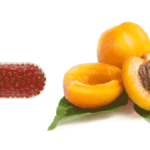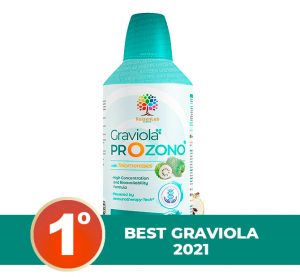In the search for comprehensive cancer care, some individuals with gut and abdominal cancer are turning to alternative approaches for additional support.
In this article, we venture into the realm of alternative therapies, exploring their potential benefits, such as reducing side effects, improving quality of life, and supporting the body’s natural healing processes. Discover the potential of these alternative approaches in the context of gut and abdominal cancer.
Once upon a time, in a bustling city, there lived a man named Angel. Angel had been diagnosed with bowel and abdominal cancer and, like many others, he began his treatment with conventional therapies such as surgery, chemotherapy and radiation. However, Angel soon realized that traditional treatments alone were not enough to combat this formidable disease.

Angel was determined to explore alternative approaches to complement his conventional treatment regimen. He delved into extensive research and discovered the importance of preventing angiogenesis, the process by which new blood vessels form to nourish cancer cells.
He learned that by inhibiting angiogenesis and cutting off cancer cells’ food supply, he could potentially slow their growth and spread. This led Angel to explore natural compounds that could help him in this endeavor.
One particular compound that caught Angel’s attention was graviola. Graviola, also known as soursop, is a tropical fruit with notable anti-cancer properties. It contains potent phytochemicals that have been shown to inhibit angiogenesis and induce apoptosis in cancer cells.
Excited by the potential of graviola, Angel began incorporating it into his daily routine. He consumed graviola juice, included the fruit in his diet, and even began taking a natural supplement called Graviola Prozono, which combined the benefits of graviola with ozone therapy.
Ozone, another alternative approach Angel explored, involved administering ozone gas into the body. Ozone has been found to increase oxygen levels and improve the immune system, making it difficult for cancer cells to survive.
As Angel continued his treatment, he noticed positive changes in his overall well-being. He felt more energetic, his digestion improved and he experienced a sense of empowerment knowing that he was actively targeting angiogenesis and preventing cancer cells from being nourished.
Angel’s determination and his belief in alternative approaches played an important role in his battle with bowel and abdominal cancer. By incorporating graviola and ozone, he was able to complement his conventional treatments and give his body the best chance to fight the disease.
It is important to note that alternative approaches should always be used in conjunction with traditional treatments. Each person’s journey with cancer is unique and what works for one individual may not work for another. However, Angel’s story illustrates the potential benefits of exploring alternative therapies and taking a comprehensive approach to cancer treatment.
Angiogenesis and apoptosis are two critical biological processes that play a vital role in gut and abdominal cancers.
Angiogenesis refers to the formation of new blood vessels from existing ones, essentially providing a ‘highway’ for nutrients and oxygen to reach the tumor, allowing it to grow and possibly spread. In the case of abdominal cancers, where tissues can be highly vascular, controlling angiogenesis can be especially crucial to inhibit tumor growth and metastasis.
On the other hand, apoptosis is the programmed death of cells, a process that goes awry in cancer. In a healthy body, cells that are damaged or no longer needed undergo apoptosis, making room for new, healthy cells.
However, in cancerous conditions, the cells evade apoptosis, leading to uncontrolled growth and the formation of tumors.
Understanding and targeting these processes in abdominal and gut cancers are critical because controlling angiogenesis can starve the tumor, while inducing apoptosis can help shrink it.
Both processes are essential for a comprehensive approach to managing these kinds of cancers.
Think of a cancerous tumor like an unruly weed growing in your garden.
For it to grow and spread, it needs water and nutrients, which it gets through new “garden hoses” it builds; that’s what we call angiogenesis.
These hoses help the weed (or tumor) get all it needs to grow bigger and even spread to other parts of the garden. Now, in a well-behaved garden, old or sick plants naturally die off to make space for new, healthy ones.
That’s called apoptosis, like a gardener pulling out the bad plants. But imagine if those weeds just refused to die; they keep growing and taking over. In gut and abdominal cancers, these two things—building their own hoses (angiogenesis) and refusing to die off (avoiding apoptosis)—are why the ‘weeds’ get out of control.
So, targeting these areas is like cutting off the hoses and pulling out the weeds, helping to stop the cancer from taking over the ‘garden’ that is your body.
In conclusion, traditional treatments alone may not always be enough to combat bowel and abdominal cancer.
Exploring alternative approaches, such as preventing angiogenesis and incorporating natural compounds such as graviola and ozone, may provide a valuable addition to the treatment regimen.
Taking a proactive role in one’s own health, just as Angel did, can lead to a more empowered and hopeful journey toward overcoming cancer.
Consider the possibilities beyond traditional treatments and let Angel’s story inspire you to explore alternative approaches in your battle against abdominal and bowel cancer.





